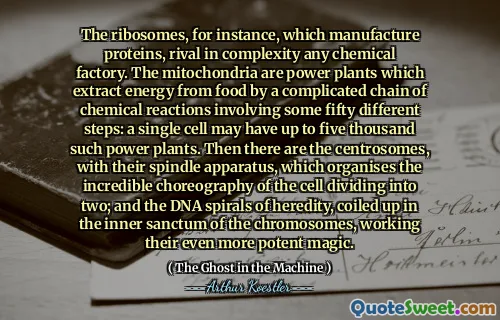"The Ghost in the Machine" by Arthur Koestler explores the relationship between mind and body, delving into the complexities of human consciousness. Koestler examines the idea that the mind, often perceived as a separate entity from the physical body, influences behaviors and actions. He draws on various fields such as psychology, philosophy, and biology to present a cohesive argument about the duality of human existence.
The book critiques the mechanistic view of the mind and emphasizes the need to understand consciousness as an integral part of human experience. Koestler presents a historical analysis of different theories regarding the mind-body problem, highlighting the limitations of purely scientific approaches that overlook the subjective nature of consciousness.
Ultimately, Koestler advocates for a more holistic view of human beings, suggesting that true understanding comes from recognizing the interplay between the physical and the mental. "The Ghost in the Machine" challenges readers to reconsider their perceptions of self and the complexities that define human life.
More »
Today Birthdays
1729 -
Edmund Burke
1949 -
Haruki Murakami
1954 -
Howard Stern
1876 -
Jack London
1993 -
Zayn Malik
1951 -
Kirstie Alley
1863 -
Swami Vivekananda
1923 -
Alice Miller
1987 -
Naya Rivera
1825 -
Brooke Foss Westcott
1944 -
Joe Frazier
1951 -
Rush Limbaugh
1964 -
Jeff Bezos
1978 -
Jeremy Camp
1628 -
Charles Perrault
1856 -
John Singer Sargent
1970 -
Kaja Foglio
1953 -
Rick Santelli
1986 -
Gemma Arterton
1968 -
Raf Simons
1958 -
Christiane Amanpour
1966 -
Olivier Martinez
1996 -
Ella Henderson
1917 -
Maharishi Mahesh Yogi
1949 -
Ottmar Hitzfeld
1928 -
Ruth Brown
1968 -
Heather Mills
1946 -
George Duke
1968 -
Rachael Harris
1923 -
Ira Hayes
